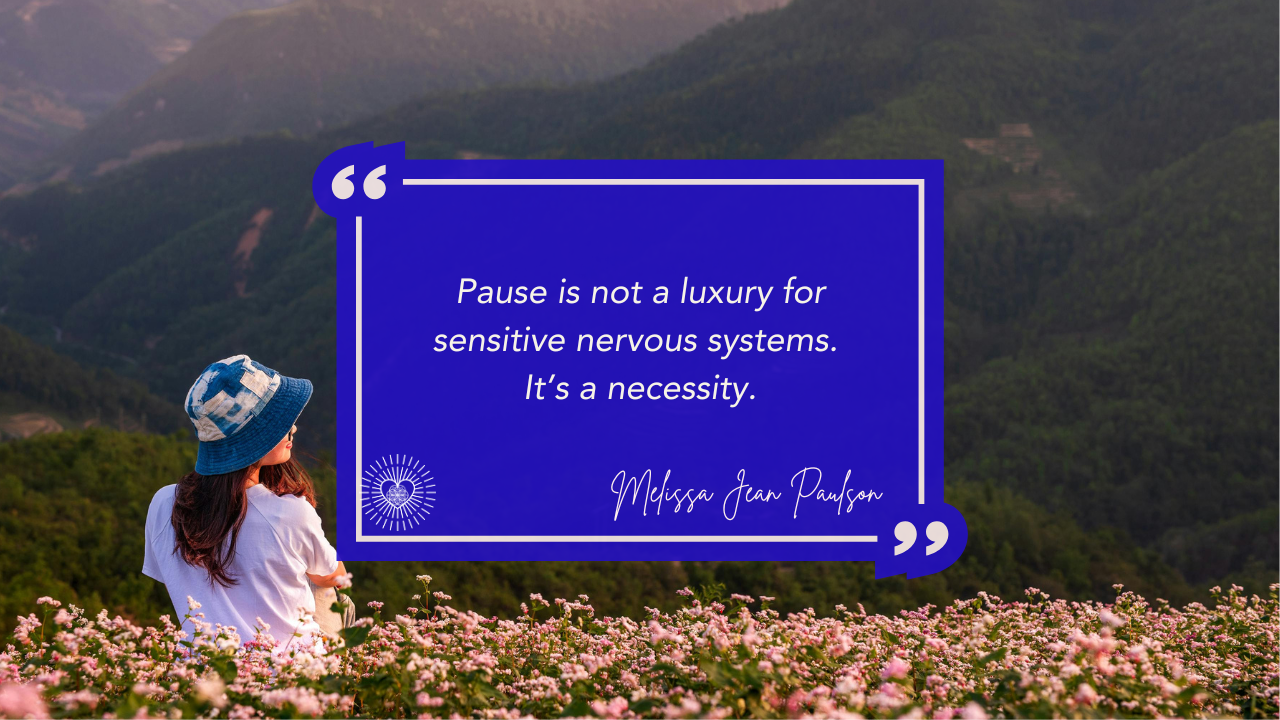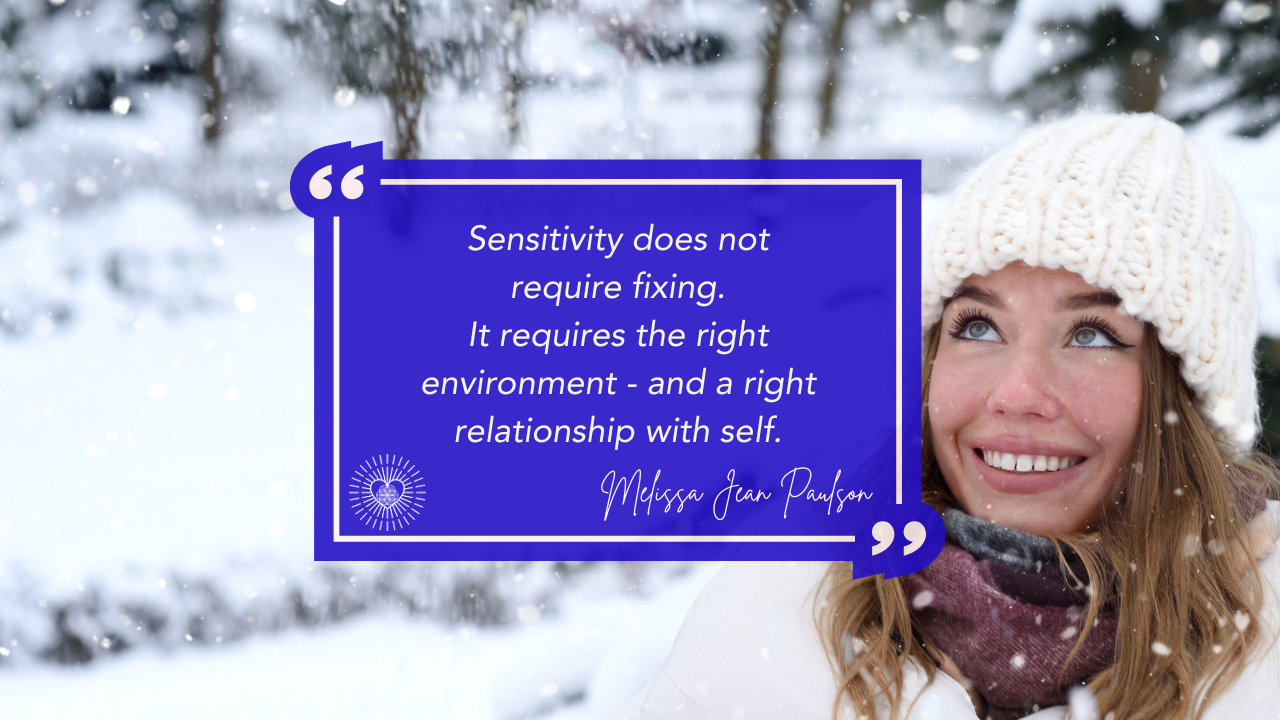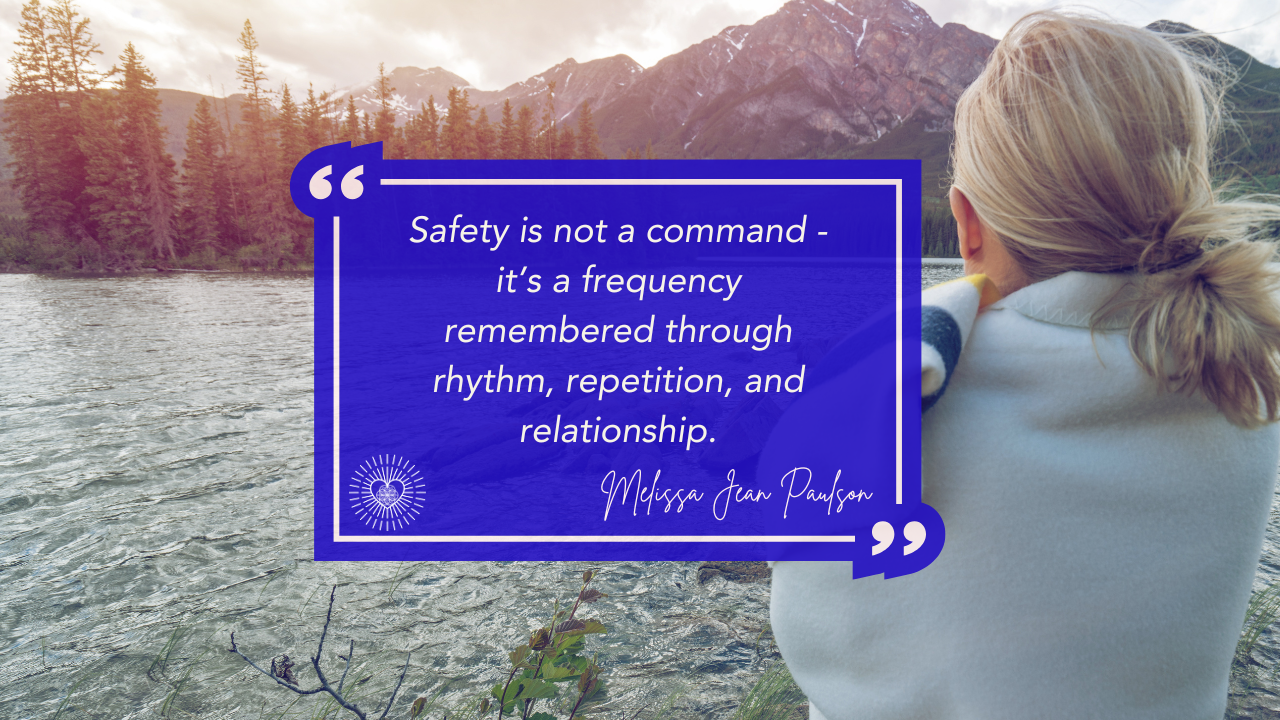Highly Sensitive Series (Part 4 of 9): Your Body's Unique Response System (Body Series 1 of 3)
Dec 01, 2024
Welcome to the first part in our Body Series. A journey into understanding how your high sensitivity manifests physically. As we transition from exploring your sensitive mind, we turn to the profound wisdom held within your body. As a highly sensitive woman, your physical experience of the world carries unique depth and intelligence that, when understood, becomes your greatest ally in navigating life's complexities.
The Mind-Body Connection in High Sensitivity
The deep processing we explored in our Mind Series extends beyond thoughts and emotions, it flows through every cell of your body. Think of how often you've felt emotions in your chest, stress in your shoulders, or intuition in your gut. This isn't just poetic language; it's your body's sophisticated communication system at work.
As women, we're often taught to doubt these physical messages, to push through discomfort, or to dismiss our intuitive hits as "overthinking." Yet your sensitivity heightens your awareness of these subtle signals, making your body an exquisite instrument for understanding both yourself and your environment.
Your Unique Nervous System
Research reveals that highly sensitive individuals process sensory information differently at a neurological level. For sensitive women, this means you're not just noticing more, you're processing everything more deeply. Your nervous system operates like a finely-tuned instrument, perceiving and responding to subtle changes that others might miss entirely.
When you enter a room, your body registers everything: the quality of light, the subtle sounds, the air flow, and especially the emotional undertones and energy of others. While everyone processes these inputs, your system does so with remarkable depth and precision. This heightened awareness, combined with your feminine intuition, creates a sophisticated guidance system. This heightened processing affects how you experience everything from physical touch to medication, from caffeine to environmental changes.
Understanding Physical Sensitivity
As a sensitive woman, your body responds to the world with remarkable awareness. You might find yourself deeply affected by the seasons, your monthly cycles, or the emotional atmosphere of your environment. This responsiveness isn't a weakness, it's your body's intelligence at work, offering you insights that go beyond surface-level understanding.
In a world that often celebrates pushing through and "doing it all," your sensitive body calls for a different kind of strength. The same sensitivity that allows you to deeply feel the texture of fabric or notice subtle changes in a loved one's mood also means you might become overwhelmed more quickly in intense environments. This overwhelm isn't just emotional; it manifests physically through muscle tension, digestive changes, or energy fluctuations.
The HSP Stress Response
Your body's response to stress is uniquely sophisticated. As a highly sensitive woman, you likely notice subtle stress signals long before others, perhaps feeling tension building during a challenging conversation, or sensing when an environment is becoming too stimulating. This early warning system, while sometimes challenging in our fast-paced world, is actually a sophisticated survival mechanism.
Physical Early Warning Signs:
- Subtle muscle tension, particularly in neck and shoulders
- Changes in breathing patterns
- Digestive system shifts
- Energy fluctuations
- Sleep pattern disruption
Many women have been conditioned to ignore these signals, to keep going despite their body's protests. But your sensitivity offers you the gift of early awareness. When you feel physical reactions happening sooner or more intensely than others might, remember: this is your body's wisdom speaking, offering you the chance to respond before becoming overwhelmed.
Honoring Your Physical Sensitivity
Understanding your body's unique way of processing leads naturally to creating practices that honor these needs. In a culture that often expects women to be endlessly available and adaptable, setting boundaries around your physical needs becomes an act of self-respect.
Your Body's Basic Rights:
-
The right to rest before reaching exhaustion
-
The right to remove yourself from overwhelming environments
-
The right to process experiences at your own pace
-
The right to protect your energy, even when others don't understand
-
The right to honor your cyclic nature and changing needs
Creating Sacred Space for Your Sensitivity:
- Design your environment to support your sensory needs
- Allow transition time between activities
- Honor your need for physical recovery after stimulating experiences
- Create regular moments of sanctuary in your day
Remember that honoring your sensitivity might look different from cultural expectations of productivity and constant availability. When you trust and respond to your body's needs, you're not just caring for yourself - you're modeling an important form of self-respect for other women and sensitive souls around you.
Looking Ahead
As we continue this series, we'll explore how to interpret your body's signals more clearly and develop practices that support your sensitive system. Each article builds upon this foundation, helping you create a lifestyle that honors both your sensitivity and your feminine wisdom. Your journey of understanding your sensitive body is both personal and profound. While others might not always understand your needs for space, quiet, or time to process, trust that your body's responses are guiding you toward deeper alignment with your true nature.
Conclusion
Trust your body's wisdom, your body's heightened responses aren't random or wrong - they're sophisticated signals from a finely-calibrated system. Learning to trust these signals is part of embracing your sensitive nature and reclaiming your feminine wisdom. As a highly sensitive woman, your physical experiences provide valuable information about your needs, boundaries, and well-being.
While society might suggest that being less reactive or more "tough" is better, your sensitivity offers you a different kind of strength. It's the strength of awareness, of deep understanding, and of authentic living. When you begin to view your physical responses as intelligent communication rather than inconvenient reactions, you open yourself to a deeper relationship with your body's wisdom. This understanding becomes your foundation for moving through the world with greater ease and confidence.
I invite you to begin noticing how your sensitivity manifests physically:
- What sensations do you experience during stress?
- How does your body communicate overwhelm?
- What environments feel most supportive to your physical well-being?
Related Articles:
- Highly Sensitive Series (3 of 9): Breaking the Cycle of Repetitive Thoughts
- Highly Sensitive Series (2 of 9): Unraveling Old Beliefs
- Highly Sensitive Series (1 of 9): Embracing the Depths of Your Inner World
References:
¹ Aron, E. N., & Aron, A. (1997). Sensory-processing sensitivity and its relation to introversion and emotionality. Journal of Personality and Social Psychology, 73(2), 345-368.
² Acevedo, B. P., Aron, E. N., Aron, A., Sangster, M. D., Collins, N., & Brown, L. L. (2014). The highly sensitive brain: An fMRI study of sensory processing sensitivity and response to others' emotions. Brain and Behavior, 4(4), 580-594.
³ Acevedo, B. P. (2020). The basics of sensory processing sensitivity. Journal of Applied Psychology.
This blog is part of The Re-Aligned Journey™ - A Spiral of Healing and Remembrance for sensitive women returning to right relationship with mind, body, and soul.
Join the Rise & Realign Lunar Letter
A weekly reflection of moon, mind, and body - guiding sensitive women to rise, reclaim, and remember.
Your privacy is sacred. We will never share or sell your information.






